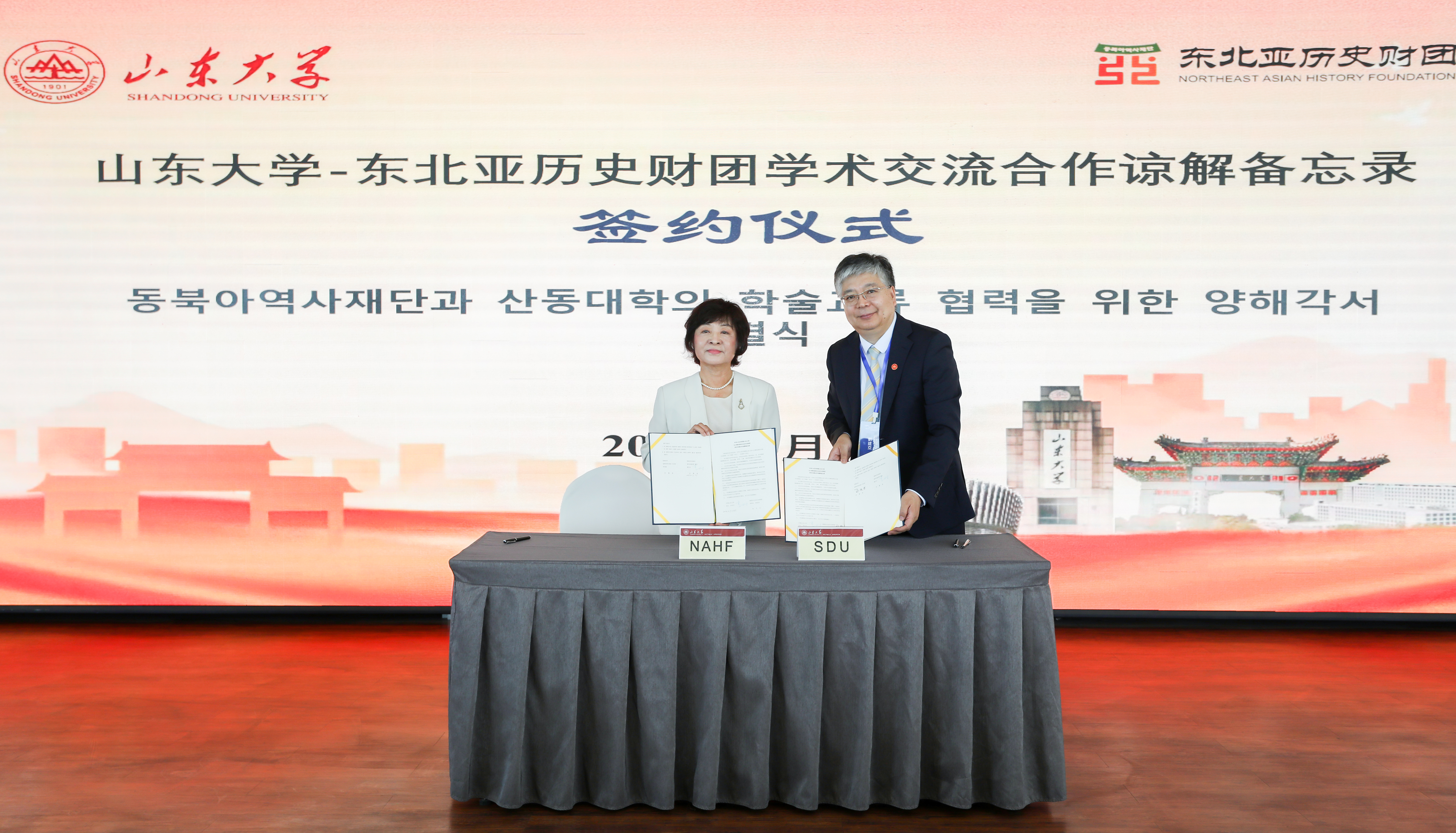On May 25th, to commemorate the 130th anniversary of the outbreak of the First Sino-Japanese War, the 120th anniversary of the outbreak of the Russo-Japanese War, and the 110th anniversary of the outbreak of World War I, the Northeast Asian History Foundation held a joint academic conference with Shandong University in Shandong Province, China, where relics of the First Sino-Japanese War and World War I are located.
The conference was titled “Modern East Asian International Wars and Historical Memory from a Geopolitical Perspective.” The foundation also signed an MOU with Shandong University for medium- and long-term academic cooperation.
Over the next five years, the main contents of the agreement will include holding regular joint academic conferences, exchanging visiting scholars, conducting joint research, and sharing publications. Shandong University is a prestigious institution with a tradition of researching the history of Korea-China relations, centered on the renowned researcher Professor Chen Shangsheng.
The academic conference and MOU signing ceremony were attended by seven members from the foundation, including Chairman Park Jihang and Director Lee Seong-jae of the Korea-China Research Institute, as well as four external participants such as former Korea University Professor Cho Myung-chul. From Shandong University, participants included Party Committee Secretary Ren Youqun, Vice President Liu Jianya, Dean of the School of History Dai Guoxi, Party Committee Secretary of the School of History Liu Jun, Director of the International Affairs Department Xu Xifeng, and Professor Chen Shangsheng.
In her commemorative speech, Chairman Park Jihang explained that the purpose of the foundation’s establishment is to establish an accurate understanding of history, wisely overcome historical conflicts with neighboring countries, and lay the groundwork for peace and prosperity in Northeast Asia. She emphasized that for this purpose, academic circles in Korea and China need to communicate with an attitude of mutual understanding.
With this MOU signing, the foundation plans to expand exchanges and cooperation with the Chinese academic community, which had somewhat stagnated since the COVID-19 pandemic.

